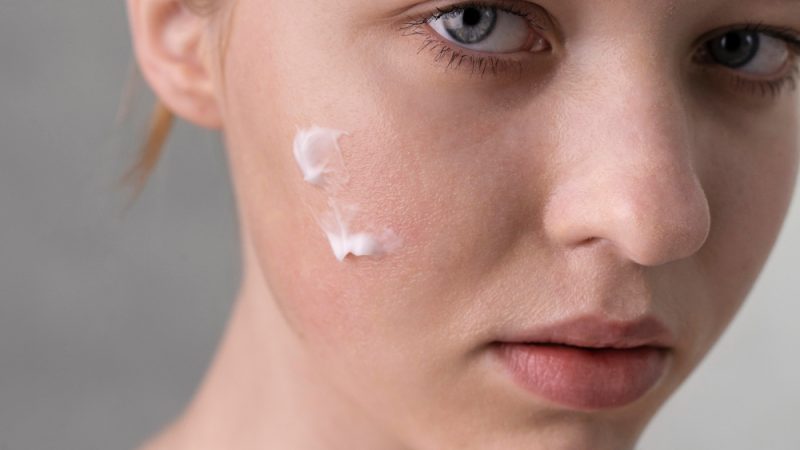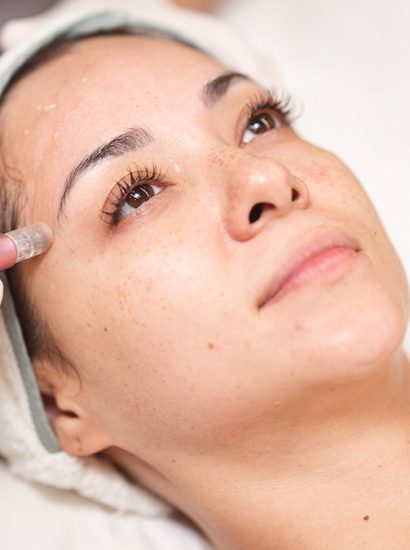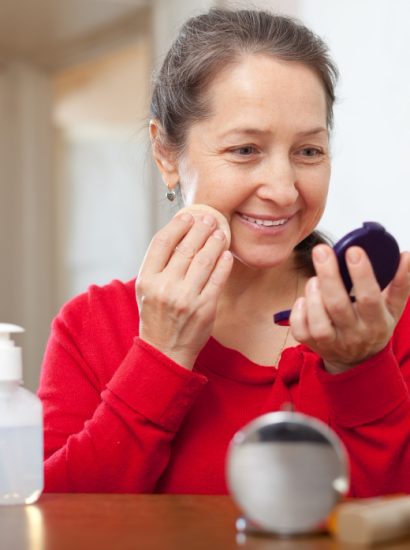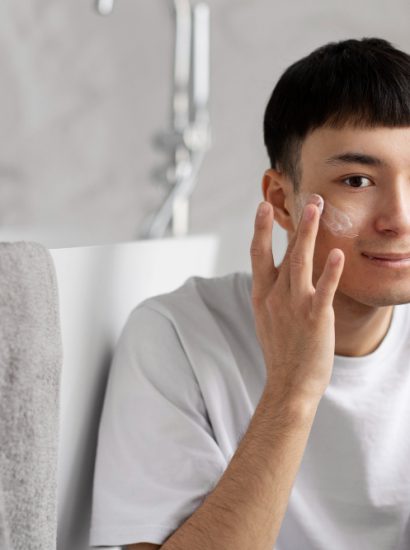Acne-prone skin can be a challenge to manage, particularly if you also have sensitive skin. Finding the right skincare routine is crucial to controlling breakouts while ensuring that the skin doesn’t become irritated or inflamed. Sensitive acne-prone skin requires careful attention to ingredient selection, product formulation, and consistent routines. Here’s a guide to help you manage acne while taking extra care of your delicate skin.
Understanding Sensitive Acne-Prone Skin
Sensitive acne-prone skin is a complex skin type that’s prone to breakouts due to excess oil, clogged pores, and bacteria, while also being susceptible to irritation from harsh ingredients or environmental factors. Factors like hormonal changes, stress, diet, and skincare products that are too abrasive can exacerbate both acne and sensitivity. Understanding the unique needs of this skin type is key to effective management.
Acne can take various forms: blackheads, whiteheads, pustules, cysts, and pimples. For those with sensitive skin, products designed for acne treatment can often cause redness, dryness, or irritation, further complicating the process. It’s important to create a skincare routine that balances acne prevention with soothing treatments for sensitive skin.
Choose Gentle Cleansers for Acne-Prone Skin
The foundation of any skincare routine is the cleanser. For acne-prone skin, a gentle, non-foaming cleanser is often the best choice. Harsh, foaming cleansers can strip the skin of its natural oils, leaving it dry and irritated, which can worsen sensitivity and acne. Look for cleansers that are free of sulfates, alcohol, and fragrances. Opt for mild formulas with ingredients like aloe vera, glycerin, or chamomile to hydrate the skin while cleansing.
A gentle, acne-targeting cleanser can help reduce the risk of breakouts without irritating sensitive skin. Cleansing twice a day—once in the morning and once at night—can help remove excess oil, dirt, and bacteria that contribute to acne formation.
Exfoliate with Care: Gentle Exfoliants
Exfoliating your skin can help prevent clogged pores, a major cause of acne. However, if you have sensitive acne-prone skin, it’s important to choose an exfoliator that’s not too abrasive. Physical exfoliants with gritty particles can cause microtears in the skin, leading to irritation, redness, and inflammation.
Instead, opt for chemical exfoliants with ingredients like salicylic acid (BHA) or glycolic acid (AHA). These exfoliants dissolve dead skin cells without the need for physical scrubbing, making them a gentler choice for sensitive skin. Use these exfoliants sparingly—1–2 times a week—and always follow up with a hydrating moisturizer.
Incorporate Acne-Fighting Actives with Care
Acne treatments often feature powerful active ingredients, such as benzoyl peroxide or retinoids, which can be harsh for sensitive skin. While these ingredients are effective at reducing breakouts, they can cause excessive dryness, peeling, or redness, especially for those with sensitive skin.
When introducing acne-fighting actives into your routine, start with products that contain lower concentrations. For example, opt for benzoyl peroxide concentrations of 2.5% rather than 5% or 10%. Alternatively, look for products with calming actives like niacinamide or zinc, which can help reduce inflammation while addressing acne concerns.
Hydrate and Soothe with Moisturizers
Moisturization is essential for sensitive, acne-prone skin. Dehydration can make the skin more vulnerable to irritation and increase the likelihood of breakouts. When choosing a moisturizer, look for products that are lightweight, non-comedogenic (won’t clog pores), and free from fragrances or alcohol.
Gel-based moisturizers are often an excellent choice for sensitive acne-prone skin as they provide hydration without feeling heavy or greasy. Look for ingredients like hyaluronic acid, which helps lock in moisture, or ceramides, which strengthen the skin’s barrier and help prevent moisture loss.
Spot Treatment for Breakouts
When breakouts do occur, spot treatments can help target specific areas without affecting the rest of the skin. For sensitive skin, look for calming and non-irritating spot treatments that contain ingredients like tea tree oil, salicylic acid, or sulfur.
Tea tree oil has natural antibacterial and anti-inflammatory properties, making it an effective ingredient for fighting acne. It’s less harsh than traditional acne treatments, making it a great option for sensitive skin. Be sure to use spot treatments sparingly, and avoid over-applying to prevent unnecessary irritation.
Sunscreen is Non-Negotiable
For acne-prone skin, sunscreen is essential, especially if you’re using active ingredients like retinoids or chemical exfoliants, which can increase skin sensitivity to the sun. Sunburn can cause irritation, inflammation, and pigmentation, which can worsen acne scars. Look for a broad-spectrum sunscreen with SPF 30 or higher that is labeled as non-comedogenic and suitable for sensitive skin.
Mineral sunscreens with zinc oxide or titanium dioxide are often recommended for sensitive skin types, as they provide a physical barrier against the sun without causing irritation. Be sure to apply sunscreen every morning, even on cloudy days or when you’re indoors, to protect your skin from harmful UV rays.
Avoid Common Irritants
Certain ingredients commonly found in skincare products can irritate sensitive, acne-prone skin. These include artificial fragrances, alcohol, parabens, and sulfates. Additionally, avoid using harsh scrubs, which can further inflame sensitive skin and worsen breakouts.
When selecting skincare products, always check the ingredient list for potentially irritating compounds. Opt for fragrance-free and alcohol-free products to reduce the likelihood of irritation. Opting for products specifically designed for sensitive skin can also help reduce the chances of exacerbating acne.
Consistency Is Key
The key to successful skincare for sensitive acne-prone skin is consistency. Your skin requires time to adjust to new products and routines, so it’s important to be patient and stick with your routine for at least a few weeks before making changes. Avoid switching products too frequently, as this can disrupt the skin’s natural balance.
Consistency also extends to your lifestyle. Make sure to get adequate sleep, reduce stress levels, and maintain a balanced diet rich in antioxidants and essential fatty acids to support healthy skin. Staying hydrated throughout the day can also help maintain skin elasticity and combat dryness.
Consider Professional Treatments
If over-the-counter products aren’t providing sufficient relief, consider consulting with a dermatologist for professional treatments. They may recommend prescription-strength topical treatments or procedures such as chemical peels, light therapy, or laser treatments. These options can target acne more effectively and help soothe sensitive skin without causing further irritation.
Before undergoing any professional treatments, make sure to discuss your skin type and sensitivities with your dermatologist to ensure the best course of action for your needs.
Conclusion
Managing sensitive acne-prone skin requires a gentle yet effective skincare routine tailored to both your acne concerns and skin sensitivity. By selecting the right products, avoiding harsh ingredients, and incorporating soothing treatments, you can keep breakouts at bay while maintaining healthy, balanced skin. Remember, consistency is key, and a little patience will go a long way in achieving clear and calm skin.
FAQs
Can I use benzoyl peroxide on sensitive acne-prone skin?
Yes, but start with a lower concentration (around 2.5%) to avoid irritation. If you notice redness or dryness, reduce the frequency of use.
What are the best ingredients for sensitive acne-prone skin?
Look for ingredients like salicylic acid, niacinamide, aloe vera, and hyaluronic acid, which help treat acne while soothing the skin.
How often should I exfoliate sensitive acne-prone skin?
Exfoliate once or twice a week with a gentle chemical exfoliant, such as salicylic acid, to avoid irritation.
What type of sunscreen is best for sensitive acne-prone skin?
Mineral sunscreens containing zinc oxide or titanium dioxide are gentle on sensitive skin and provide broad-spectrum protection.
Is it safe to use retinoids on sensitive skin?
Retinoids can be effective but may cause irritation in sensitive skin. Start with a lower concentration and apply sparingly, gradually increasing use as your skin builds tolerance.
Also read: 10 Best Face Oils for Sensitive Skin: Soothe and Nourish Naturally





